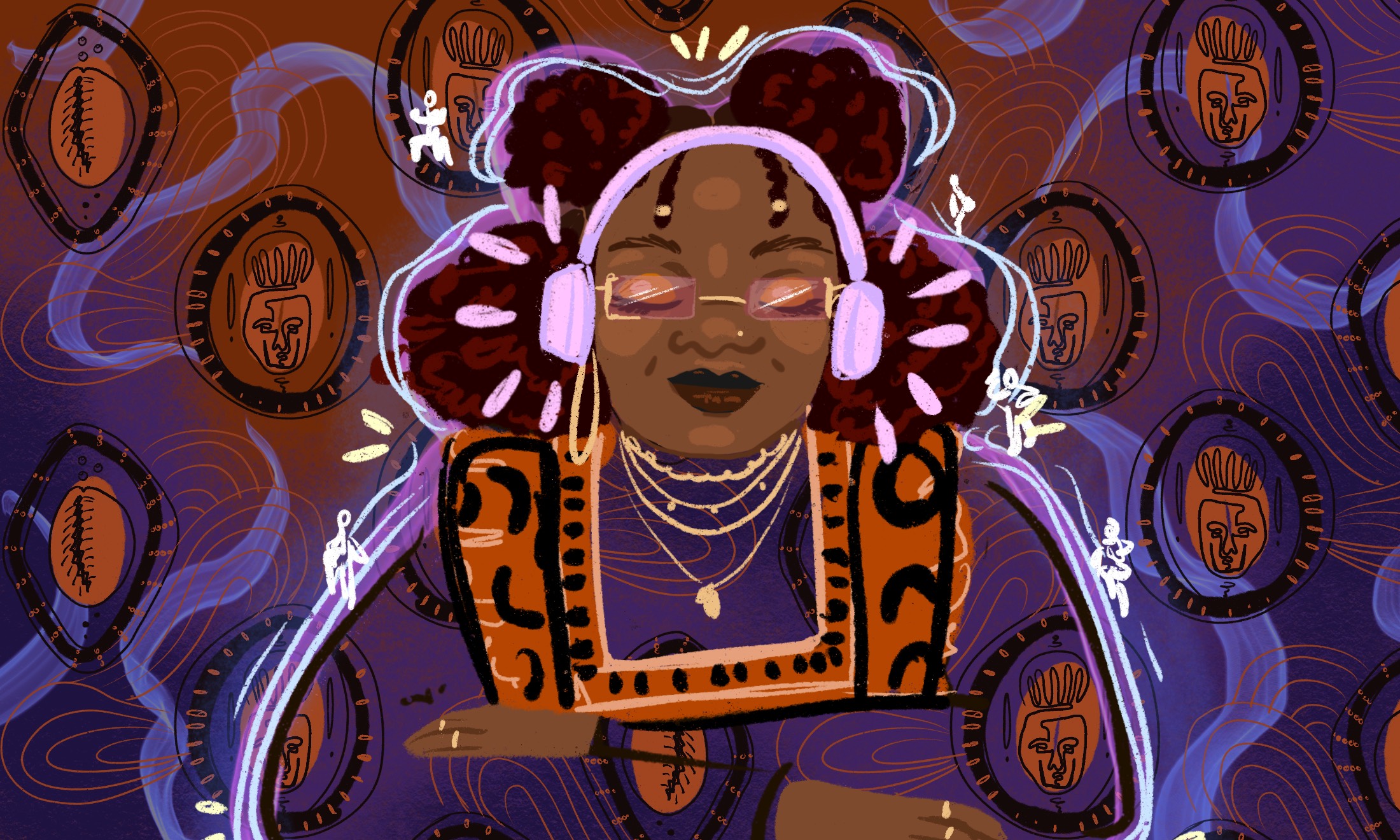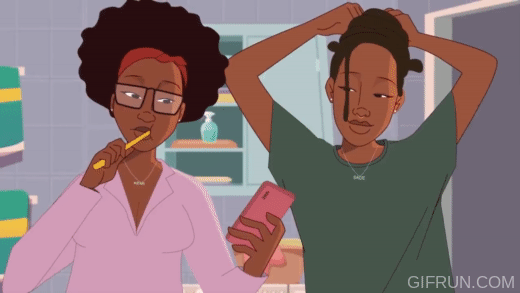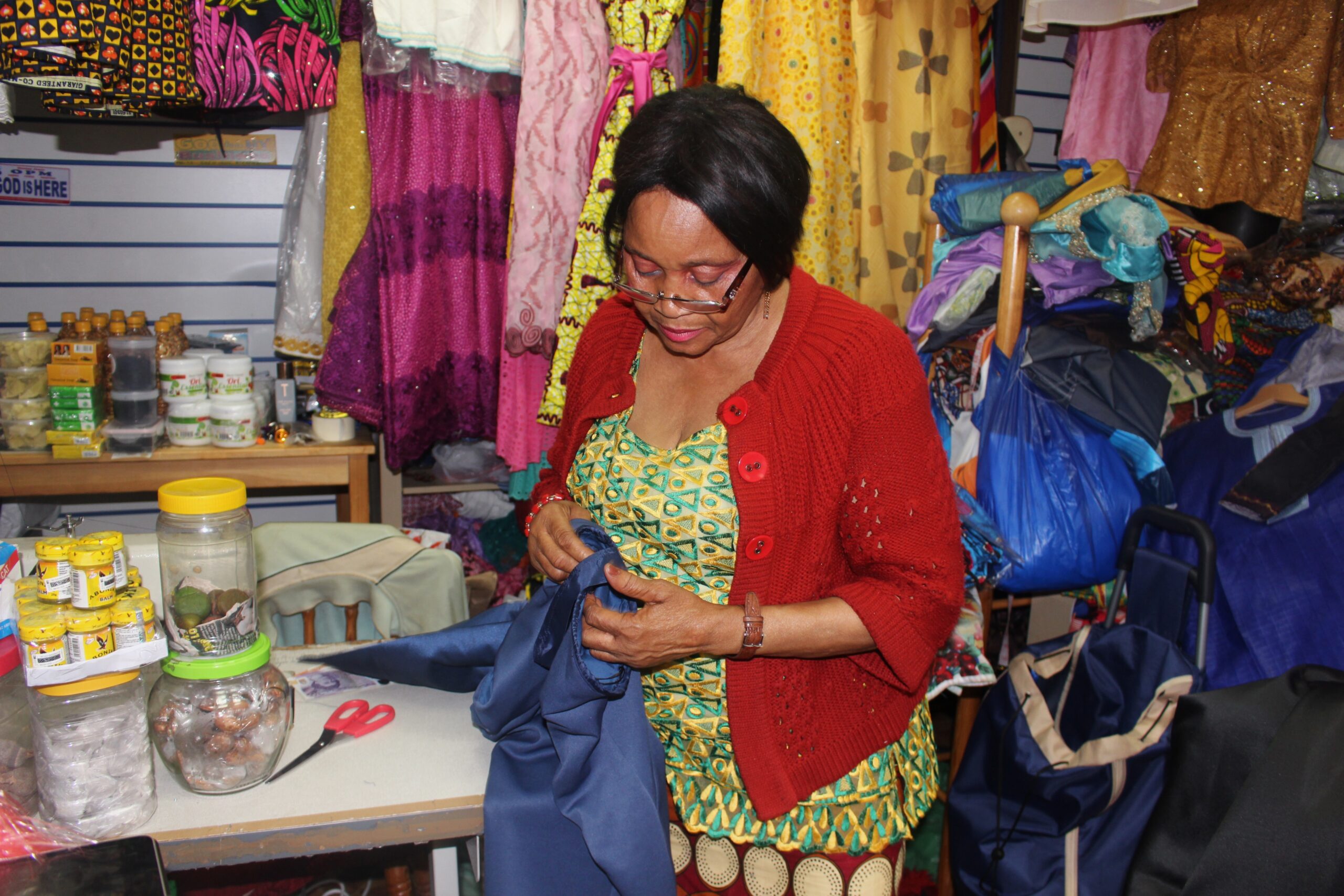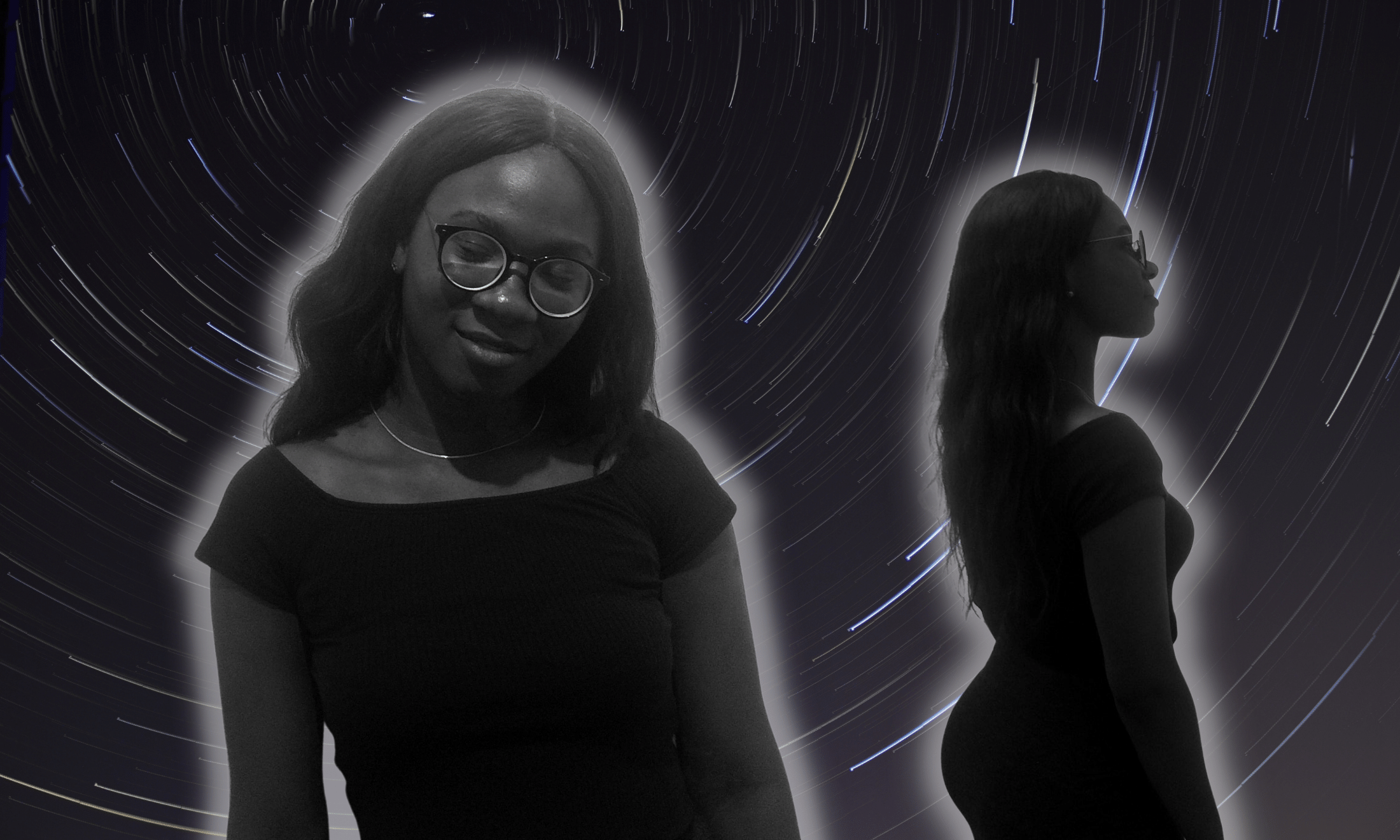
Tinuke Fagborun
As a British Nigerian, Alté music shines a light on my past, present and future
I could ramble on and on about where specific songs take me back to all day – Alté has the effect of catapulting me back to fond memories in my life.
Edwina Omokaro
19 Jan 2022
I get my eclectic taste in music from my mum. As a young Nigerian woman growing up in London, I picked up my love for Nigerian music from her. I grew up listening to legends such as Lagbaja, Fela Kuti, Asa, Tony Tetuila, Baba Dee and Sunny Ade. Despite whatever material conditions we were going through growing up, my Mum always had an amazing sound system that would boom throughout the house – a central part of my childhood. So when I stumbled upon Alté, I was not only drawn to how familiar it felt listening to the myriad compositions of sounds, but I also connected with how expressive and innovative it all was.
“The Black British experience isn’t monolithic: there isn’t one way to be Black British. Connecting with Alté music has helped me to reckon with that fact”
“Wetin dey, oh, wetin dey.” As soon as I heard these lyrics in ‘Wetin Dey/ Better Days’ by Alté star Odunsi (The Engine), I instantly recognised that the song sampled Ruff Rugged & Raw’s early 2000s song ‘wetin dey’. I was transported to 2008, when I was living in Lagos, Nigeria with my grandparents. My mum holds our culture dear to her heart and she felt like, living in London, we wouldn’t be able to truly grasp how layered and abundant our Nigerian culture was. So, my siblings and I were “shipped”. I later found out that this experience of being “shipped” is not one that was unique to my siblings and I – in fact, it is an experience shared with many other Nigerians in the diaspora where you are sent to your country of origin to learn the culture and to get to know our extended family. I attended school in Lagos for three years and I was truly immersed in my culture as my mum intended.
During those balmy Lagos evenings, against the hubbub of the generator engine, you could hear daring lyrics over the smooth, bouncy tunes being played from the ‘boys’ quarter’ in my Grandpa’s compound. It took me back to a time when I was a carefree child.
I could ramble on and on about where specific songs take me back to all day – Alté has the effect of catapulting me back to fond memories in my life.
What is Alté? Alté generally refers to ‘alternative’. The term was coined by DRB Lasgidi artists Boj and Teezee. Some would describe it as a burgeoning genre and scene that is an amalgamation of a diverse range of styles including R&B, Highlife, Afrobeats amongst many others. However, I would describe it as more than a genre. It is a movement which not only encompasses music but also fashion, lifestyle and videography, pioneered by DJ FeMo, Odunsi, Cruel Santino and other Nigerian musicians. Sonically, there isn’t one distinctive sound that binds all these artists together. Conceptually, the thread that binds them together is one of freedom of expression, rebelliousness and channelling the previous generation of artists.
“It was refreshing to see young Nigerian artists experiment with gender expression and storytelling while simultaneously paying homage to those that came before them”
My experience of being a Nigerian woman living in London is intrinsically linked to my relationship with Alté. Much like the Black British experience, Alté is constantly changing, growing and evolving. It isn’t easy to define and it is unique. The Black British experience isn’t monolithic: there isn’t one way to be Black British. Connecting with Alté music has helped me to reckon with that fact. Having grown up with a blend of British and traditional Nigerian – more specifically Yoruba – culture and values, I’ve been moulded into the woman I am today.
It was refreshing to see young Nigerian artists experiment with gender expression and storytelling while simultaneously paying homage to those that came before them. For example, when watching the music video for ‘Raw Dinner’ by Cruel Santino, you can see that inspiration has been drawn aesthetically from old Nollywood films. When listening to ‘Cash’ by Lady Donli, you can hear the clear influence of Fuji and Highlife music. It reminds me of being at someone’s aunty’s 60th birthday in a council hall, live Fuji music venerating the celebrant, children waving their limbs around to impress their elders and being sprayed with one dollar notes when the waving of limbs formed into a coherent dance.
Seeing this experimentation by prominent Alté artists has definitely had an influence on the way I choose to express myself. Growing up in a household that upholds traditional Nigerian culture and values, having piercings and tattoos is heavily frowned upon. Anything that goes against the grain, be it short clothing or wearing your hair in a certain way, will invite unsolicited opinions from an aunty or uncle. So not only do I love the aesthetic from the Alté scene but I have also been empowered by seeing other young Nigerians to get that tattoo or septum piercing, to wear my hair in whatever way I want to and to wear my platform Doc Martens with my short skirt.
“Humans cannot yet time travel, but I think Odunsi has come pretty close to being able to do so”
My mum doesn’t seem to see the influences of the previous generations in Alté music today. “You have to decipher the music to understand the music of this generation,” she says. “In those days, the music would give you advice, you’d learn from music but the music of your generation is so different. I can’t understand it.” I find our parents’ attitude towards this music laughable because she describes the ‘Raw Dinner’ video as scary but, to me, what makes the video scary is the way Santi has drawn on imagery from old school Nollywood films – which we grew up watching together.
For the past two years, time has blurred into one for me and many other people across the globe. During that time, it has just been me and the album Rare by Odunsi on repeat. It felt like floating through an audio-visual spatial manifestation of a love letter from the 80s. His music cradled me during the last few difficult years that we have shared. Humans cannot yet time travel, but I think Odunsi has come pretty close to being able to do so.
To me, Alté is more than a genre of music. It is an experience, a way of being and existing. I look forward to it becoming more prominent in mainstream music in the next few years so that I can share this experience with more people on an international scale.









